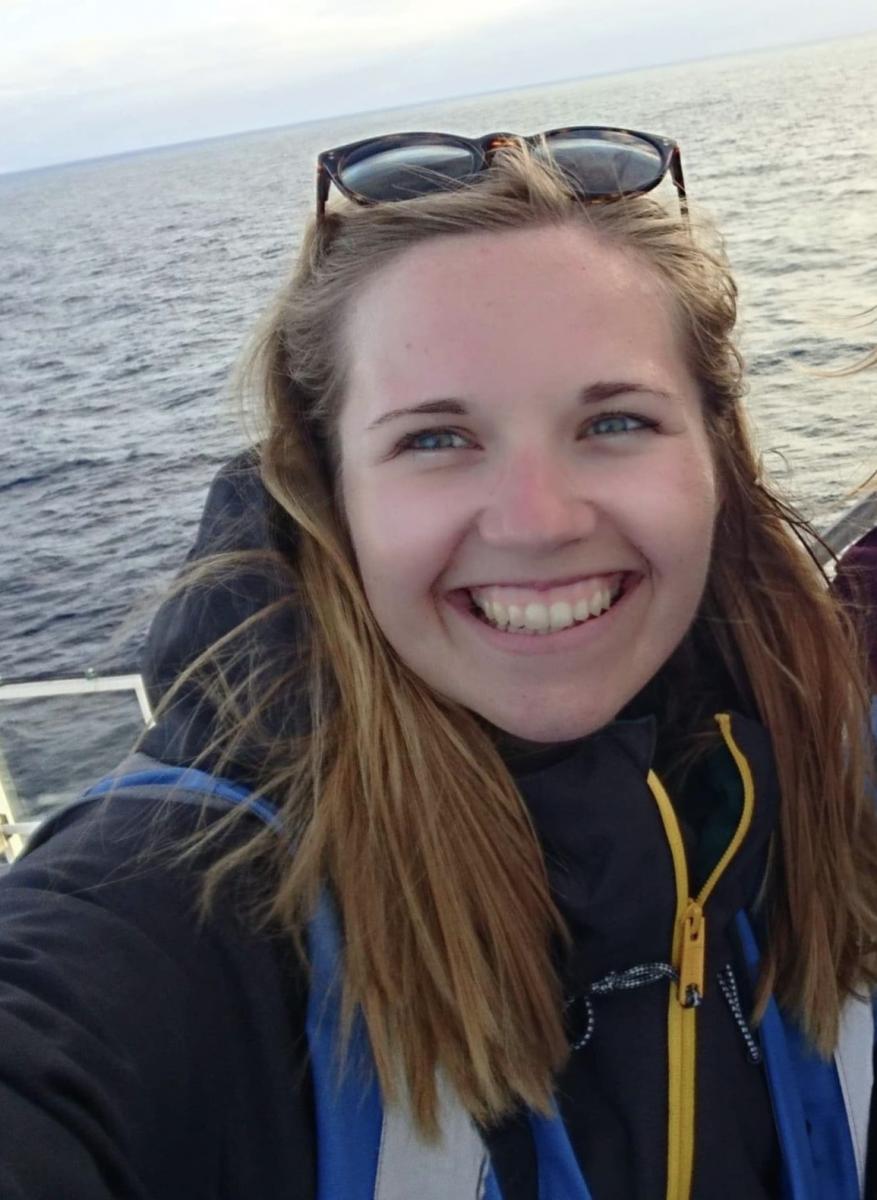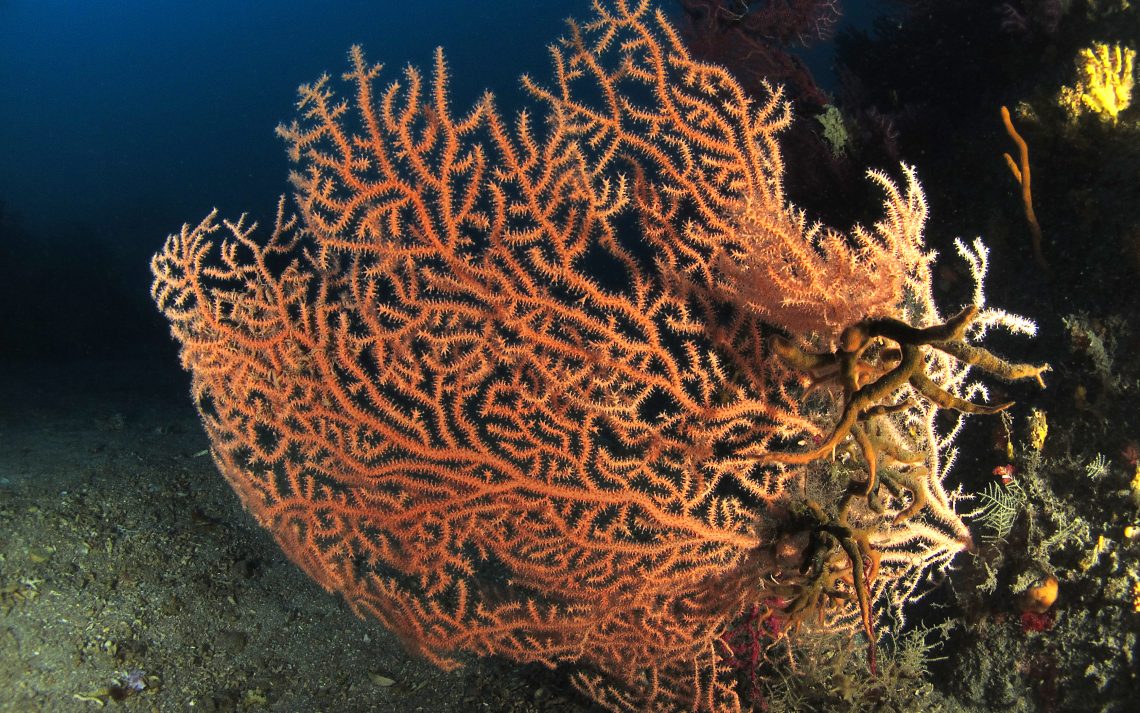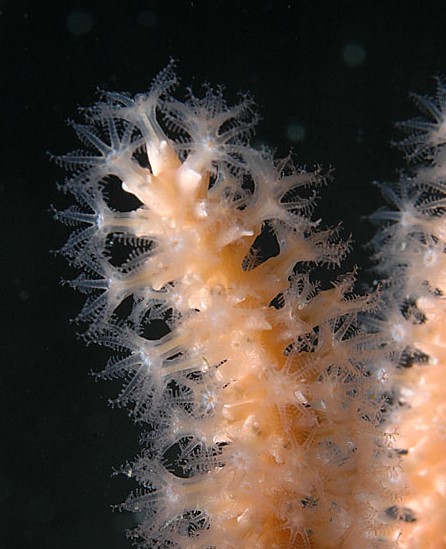You are here
Kirsty Macleod

Email: k.macleod@exeter.ac.uk Twitter: @KirstyLMacleod
Research interests
From early on in my undergraduate studies, my eyes were opened to the world of molecular ecology. From what initially appears a vast homogenous seascape, molecular studies have revealed that for most marine organisms this is largely not the case, with patterns of genetic population structure resulting from many ecological pressures, such as geographical heterogeneity and evolutionary history.
In my research, I aim to better understand at what proportion do different ecological pressures drive population connectivity in marine life by integrating factors such as demography, gene flow, oceanography and life history traits. By understanding how each factor contributes marine connectivity, and therefore the persistence of species populations, we will be able to predict how changes in such factors expected through climate change will impact species.
Fundamental to my research is connecting the implications of my research findings to its real-life applications – this I believe is too overlooked in academic research. In order to achieve this, I take part in public engagement opportunities that able to connect my research, and the global importance of marine science, to the wider public. I also aim to take the opportunity to carry out a policy internship during my PhD to better understand how, as a scientist, I can make my research findings more accessible and directly useable to the formation and backing of marine policy.
PhD research
For my PhD I will be examining the fine-scale population structure of the pink sea fan, E. verrucosa, in order to understand genetic connectivity across its northeast Atlantic and Mediterranean distribution. For this I will be examining SNPs across the genome via a RAD sequencing approach, in examine what is driving population structure, such as geographic barriers or the dispersal potential of larvae. Alleviating the drivers of population structure, such as limited larvae dispersal, will have important ecological implications for the placement of Marine Protected Areas. Alongside this, I aim to link genotype to phenotype by combining the genetic analyses with my own mesocosm experimentation to determine how E. verrucosa may respond to fluctuations is sea surface temperatures expected as a result of global climate change.


During my PhD I am collaboration with Natural England working alongside a Marine Advisor to be able to directly apply my findings of pink sea fan connectivity to the future placement of UK Marine Conservation Zones (MCZs), and also the potential placement of new MCZs across the northeast Atlantic and Mediterranean Sea. I will also be carrying out a three-month internship with Natural England in order to see how we can better utilise i. marine connectivity to better monitor current MCZs and ii. How we can better utilise citizen science data to monitor MCZs.
Publications
Gubili, C., Macleod, K., Perry, W., Hanel, P., Batzakas, I., Farrell, E., Lynghammer, A., Mancusi, C., Mariani, S., Menezes, G., Neat, F., Scarcella, G. and Griffiths, A. (2016) Connectivity in the deep: Phylogeography of the velvet belly lanternshark. Deep-Sea Research I, 115, 233- 239
https://www.sciencedirect.com/science/article/pii/S0967063716301790
Grants
Genetics Society Heredity Fieldwork Grant (£1994) – Jan 2019
Conferences and events
Natural England annual Marine Conference Nottingham Feb 2019
Wessex GW4+ DTP Conference Oxford March 2019 – presented a poster titled, “Unravelling drivers of marine connectivity in pink sea fan: implications for its conservation and the designation of Marine Protected Areas”.
Previous research
One of my key research focuses, that has shaped my past research projects and current PhD, is to further my knowledge and expertise of how we can use molecular tools to investigate the ecology of marine organisms. In an ecosystem where obvious barriers to migration and reproduction are not clear, and anthropogenic pressures are predicted to induce unfavourable conditions for many taxa, the use of genetic analyses has never been more paramount.
MSc research project titled, “Not so simple now: characterisation of the complement system in Scyliorhinus canicula (small-spotted catshark), as a representative of the cartilaginous fish – the most basal lineage of the jawed vertebrates.
During my MSc project I aimed to characterise the structure of complement immunity, the innate immune system, within the small-spotted catshark. To do this I sequenced key complement genes and carried out phylogenetic analyses to compare the structure and evolutionary history of this immune system across the elasmobranch class. Understanding the form of innate immunity within this class has fundamental implications for predicting the adaptive ability of shark taxa to anthropogenic pressures such as, increased sea surface temperature and ocean acidification, as this innate immune system will be the ‘the first line of defence’ against potential bio-physiological changes.
BSc research project titled, “The history of two genomes: analyses of mitochondrial and nuclear DNA across oceanic distances in the velvet belly lantern shark Etmopterus spinax”.
During my BSc research project I examined the genetic population structure in the deep-sea elasmobranch, the velvet belly lantern shark using partial regions of the mitochondrial control region and a partial region of the ITS nuclear DNA locus. This has now been published in the peer-reviewed journal Deep-sea Research I (see above for link).
I was particularly attracted to this project as it has critical real-life application to northeast Atlantic fisheries. Identifying genetic stocks will enable us to better understand how sub-populations may respond to localised depletion through fishing and highlight ‘important’ populations that act as sources for maintaining genetic diversity.
Education
PhD Biological Sciences, University of Exeter (2018-current)
MSc Marine and Freshwater Ecology, Queen Mary University of London (Distinction)
BSc Biology (Hons), University of Bristol (First Class)
- 1430 reads
The University of Exeter, The Queen's Drive, Exeter, Devon, UK EX4 4QJ
Copyright and Disclaimer

